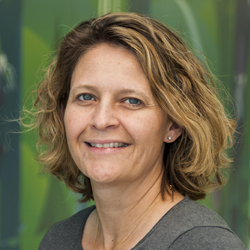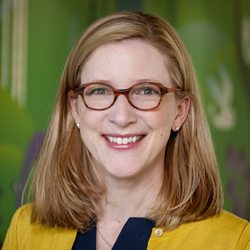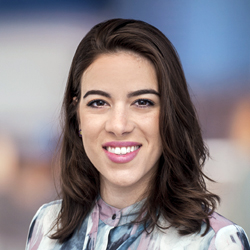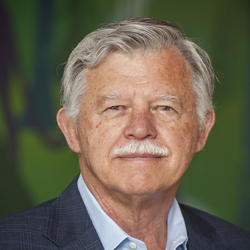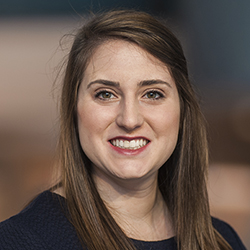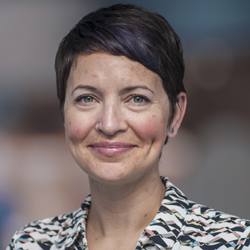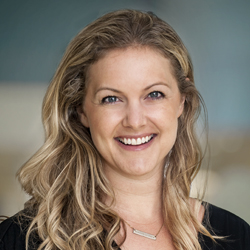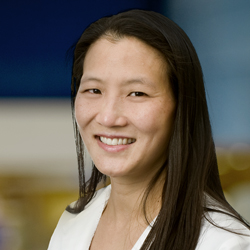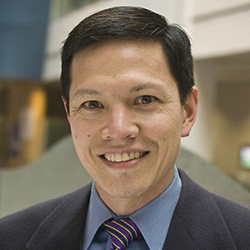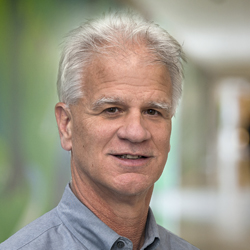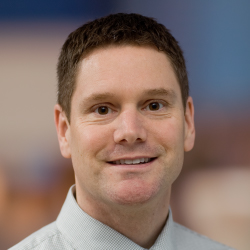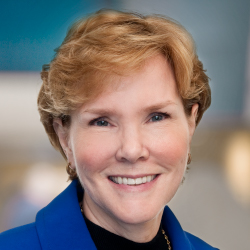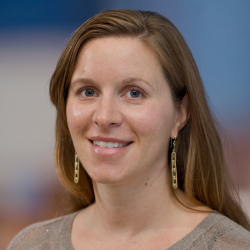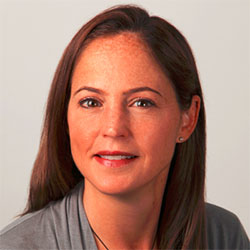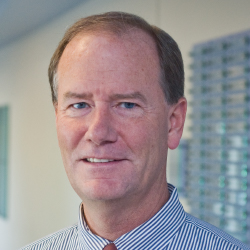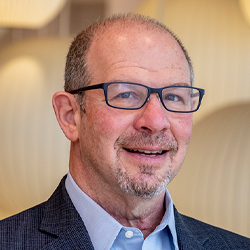Bronchopulmonary Dysplasia (BPD) Program
What is bronchopulmonary dysplasia?
Bronchopulmonary dysplasia (brahn-ko-PUL-moh-nair-ee dis-PLAY-zhee-uh) is long-lasting damage to the lungs. It mainly affects babies born very early (prematurely). Their lungs are not fully formed, and they need extra oxygen through a tube placed into their nose or into their windpipe for a breathing machine. Although this treatment with oxygen is lifesaving, it can harm their airways and prevent healthy lung growth.
BPD also is called chronic lung disease of prematurity. The number of newborns with BPD has risen as more and more babies survive being born many weeks before their due date.
How severe BPD is varies from baby to baby. Some babies with severe cases come to our hospital by emergency helicopter soon after birth. With good treatment, most babies get better over time. Even so, many will need follow-up care.
What is the Bronchopulmonary Dysplasia Program at Seattle Children’s?
The Bronchopulmonary Dysplasia Program is a multidisciplinary team of experts focused on caring for babies with long-term lung problems called BPD. We partner with your family to make sure your child gets all the care they need, as long as they need it. In the hospital we provide specialized care in our Level IV Neonatal Intensive Care Unit (NICU), pediatric ICU and lung-care (pulmonary) unit. When your baby is ready to go home, we work with your family and doctors in your community to be sure your baby has a smooth transition. As long as needed, Seattle Children’s specialists provide check-ups and follow-up care.
Why choose Seattle Children’s for care?
Our team is experienced in caring for fragile babies with the most severe BPD. We provide seamless care from your baby’s first assessment through treatment and long-term follow-up. Research shows that when hospitals have dedicated teams, patients with severe BPD have shorter hospital stays and better outcomes.
We are part of the BPD Collaborative Network. Thirty BPD programs at children’s hospitals across the nation share information and best practices to improve care and outcomes for babies with severe BPD.
- For a second opinion or information about hospital care for your baby, email our BPD team or contact Seattle Children’s Neonatology at 206-987-2675.
- Providers can email our BPD team or call 206-987-7777 or 866-987-7777 (toll free) about patients who need attention right away. Read how to transfer your patient.
- If your child needs follow-up care, contact our Pulmonary Program at 206-987-2174 or ask your primary care provider to refer you to our Pulmonary Program.
-
Multidisciplinary team drawn from the nation’s best programs
- Our compassionate team includes pediatric experts in lungs (pulmonologists and respiratory therapists), hearts (cardiologists), newborn care (neonatologists) and intensive care (NICU and PICU).
- U.S. News & World Report consistently ranks Seattle Children’s tops in the Northwest and among the nation’s best programs in pulmonary, neonatology and cardiology.
- All during your baby’s hospital stay, specialists will check your baby and decide the best ways to support their breathing, nutrition and brain development. You are part of our team, and we work hard to keep you informed.
- At weekly meetings, the whole BPD team talks about each baby in depth and consults with the team that provides their day-to-day care. In this way, we get to know your baby very well and can best guide their care.
- As needed, your child will get treatment from experts in nutrition, social work, physical therapy (PT), occupational therapy (OT), otolaryngology, surgery, lactation support, child life and other specialties.
-
Experienced in treating the sickest children
- Our transport team of doctors, nurses and respiratory therapists are national leaders in safely moving very sick babies by ground and air from other hospitals to Seattle Children’s.
- Our Level IV Neonatal Intensive Care Unit (NICU) is skilled and equipped to care for the sickest newborns. Seattle Children’s is the first hospital in Washington to have a Level IV NICU.
- Babies who need intensive care after their newborn period are treated in our Pediatric Intensive Care Unit (PICU). They receive around-the-clock care from doctors and nurses who are certified in pediatric critical care medicine and Pediatric Advanced Life Support (PALS).
- Our nationally recognized Pulmonary Program cares for babies, children and teens with complex needs, such as breathing through a tube in their windpipe (tracheostomy) and with help from a breathing machine (ventilator).
- We have the only program in the region for babies who need a machine to do the work of their heart and lungs. This is called ECMO or extracorporeal life support (ECLS).
-
Care from baby’s first days all through childhood
- At each step of your baby’s hospital stay we coordinate their care, whether they need breathing or feeding support, surgery or neurodevelopmental therapy.
- In addition to caring for babies at our main hospital in Seattle, we advise doctors treating newborns with breathing problems at hospitals across the Northwest (Washington, Alaska, Montana and Idaho).
- With this guidance, some babies can stay in a hospital near their home or return there sooner. For others, we can plan for a safe, timely move to Seattle Children’s if needed.
- After your child leaves the hospital, our evidence-based follow-up care helps keep them as healthy as possible. All during childhood, we work to improve their lung health, help them reach developmental milestones and avoid hospital stays or emergency room visits.
-
Support for your whole family
- Your family is a key part of your child’s care team. We take time to explain your treatment plan so you can make the choices that are right for your family. Our large, airy hospital rooms provide space for parents to stay in the room, bond with their baby and meet with the care team.
- Our doctors, nurses, child life specialists and social workers help your child and family through the challenges of BPD. We connect you to resources for families of newborn and premature babies and information about treatments and home care for babies with breathing problems.
- When your baby is ready to leave the hospital, we help set up any supplies you need for home care. You will have lots of time to practice all your baby’s care before going home.
- At Seattle Children's, we work with children and families from around the Northwest and beyond. Whether you live nearby or far away, we can help with financial counseling, schooling for other children in the family, housing, transportation, interpreter services and spiritual care. Read about our services for patients and families.
-
Research to improve care
Seattle Children’s physician-scientists do research in the lab and in the clinic to improve care and quality of life for children with BPD. Our patients have the option to take part in studies of promising new treatments.
- Seattle Children’s also belongs to the Children’s Hospitals Neonatal Consortium (CHNC). Members are Level IV NICUs that work to improve treatment and outcomes for high-risk infants.
- Drs. Robert DiGeronimo, Steve Welty and Laurie Eldredge do research with patients to better understand treatment and outcomes of babies with BPD.
- In the lab, Dr. Laurie Eldredge studies the role of white blood cells (macrophages) in BPD.
- Dr. Sara Berkelhamer conducts research on newborn lungs.
- Drs. Delphine Yung and Kendra Smith work to create new treatments for pulmonary hypertension, which affects many babies with BPD.
Services We Offer
-
Safe transfer
For babies who need emergency transfer, our team of doctors, nurses and respiratory therapists are national leaders in safely moving fragile newborns.
Watch to learn about your baby's trip to the NICU. (video 5:10)
-
Breathing support
The type of breathing support that is best for your child and how long they need it depend on their condition. They may use different forms of support over the course of their illness.
- ECMO is a life support method that uses a heart-lung pump when a child's heart or lungs are not working right or need time to heal.
- High-frequency ventilation is a gentler type of breathing machine that sends small, quick puffs of air into your child's lungs.
- When using conventional breathing machines (ventilators), we choose an approach that works with your baby’s own breathing to best support their lungs.
- For babies who do not need ventilator support, we provide a steady flow of air to their lungs from a machine via a mask or prongs into their nose. This is called “noninvasive ventilation” because the mask or prongs can be removed easily.
- Inhaled nitric oxide (iNO) is used to treat respiratory failure and high blood pressure in the lungs. It helps the blood vessels in the lung open so they can carry oxygen-rich blood into the body.
-
Repairs to heart defects
Some children have BPD because they were born with a heart defect, such as patent ductus arteriosus (PDA) or atrial septal defect (ASD). Experts in our top-ranked Heart Center will care for your child. Many heart defects can be fixed with cardiac catheterization, but others need surgery. Our outcomes are among the best in the nation for heart procedures for children.
-
Aerodigestive Program
The Aerodigestive Program treats children from birth to age 21 who have complex upper airway, breathing and swallowing problems. We treat conditions that affect both the airway and digestive tract.
-
Nutrition support
- Our team supports your baby’s nutrition needs all during their hospital stay and beyond.
- Your baby may need to be fed via a tube from their nose to stomach (nasogastric tube or NG tube), a tube through the belly wall into the stomach (G tube) or a tube into a vein (IV line). Some feeding tubes are placed by a surgeon or interventional radiologist.
- Some babies have problems with milk or formula flowing backwards from their stomach into their esophagus. This is called gastroesophageal reflux (GER) and could affect their lungs. We are experienced in treating GER.
- If you are planning to breastfeed your baby, our nurses and lactation specialists will do all that we can to help build a milk supply for your baby. When your baby is ready, we help with the transition to feeding by bottle or breast.
- Our occupational therapists help your baby improve their feeding skills. If your child needs tube feeding until they learn to eat safely, we teach you how to care for the tube at home.
-
Home ventilation
Seattle Children’s Home Ventilation Program provides comprehensive care to babies and children of all ages who need a breathing machine (mechanical ventilation) linked to a tube through their windpipe (tracheostomy). Our goal is to give your child the best chance to grow and take part in life while getting the breathing support they need. Learn more.
-
Neurodevelopmental support
Severe BPD increases the chance of problems with a child’s brain and nervous system. These may involve their thinking, learning, feeding, emotions, behavior or speech and language.
In the hospital, physical therapists and occupational therapists work with your baby to help reach developmental milestones.
During childhood, our neurodevelopmental experts can assess your child and recommend therapies to meet their needs. We work closely with the infant development follow-up clinic at the University of Washington.
-
Follow-up care as your child grows
Seattle Children’s can be your child’s medical home for as long as needed, with check-ups and expert follow-up care for problems that affect some children with BPD. Your child will get care from some of the same providers who treated them in the hospital. We create a plan and a follow-up schedule that are right for your child.
Depending on your child’s needs, they may see specialists in:
BPD Team Co-Directors
-
Co-Director, Bronchopulmonary Dysplasia Program
-
Laurie Christine Eldredge, MD, PhD
Co-Director, Bronchopulmonary Dysplasia Program
Teams
Contact Us
- For a second opinion or information about hospital care for your baby, contact Seattle Children’s Neonatology at 206-987-2675.
- Providers can email our BPD team or call 206-987-7777 or 866-987-7777 (toll free) about patients who need attention right away. Read how to transfer your patient.
- If your child needs follow-up care, contact our Pulmonary Program at 206-987-2174 or ask your primary care provider to refer you to our Pulmonary Program.
- Learn about useful links, videos and recommended reading:
Telemedicine at Seattle Children’s
You may be offered a telehealth (virtual) appointment. Learn more.
Paying for Care
Learn about paying for care at Seattle Children’s, including insurance coverage, billing and financial assistance.
Access Additional Resources
Get resources for patients and families, including information on food, housing, transportation, financial assistance, mental health and more.
